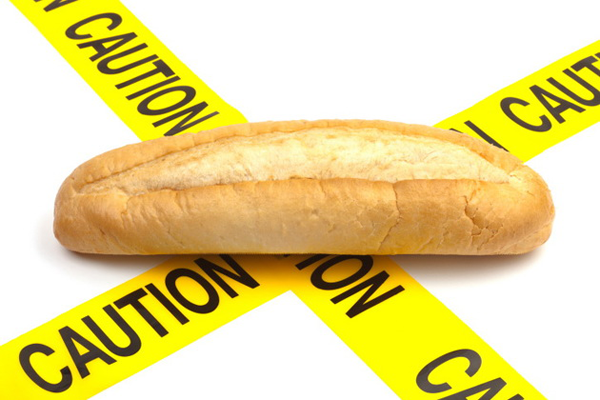How do you know if a gluten free diet is right for you? Statistics show that 15% of the population in the United States is plagued with Celiac Disease or gluten intolerance. These two conditions are caused by your body reacting negatively towards the protein gluten.
Gluten is found in grains like wheat, rye, barley, and oats. Whole grains have tremendous health benefits including reduction of cholesterol and promotion of heart health. Your body may feel better on a gluten free diet, but don’t automatically start banning whole grains from your kitchen. Let’s take a look at all the facts before whole grains get a bad name.

What Is Gluten Intolerance & Celiac Disease?
Celiac disease is a reaction to the gluten protein by the bodies immune system. The immune response is triggered in the small intestine.
Over time the reaction causes an inflammation effect that damages the intestine wall and prevents proper digestion of nutrients. If the malabsorption is serious enough your body won’t get what it needs from your diet which leads to malnutrition in the long term.
The development and growth of children can be affected by this condition if no diet changes are made.

If you have gluten intolerance the body’s immune reaction doesn’t happen as quickly, and the symptoms are not as extreme. This makes it harder to diagnose because. The broad range of symptoms include:
- Gastrointestinal distress, like bloating, gas, diarrhea, constipation, etc.
- Fatigue
- Headaches
- Nutrition deficiencies (e.g. not enough of certain vitamins and minerals)
- Slow child growth and development
- Eczema
- Irritability, depression, and other mood changes
- Irregular stools due to poor digestion
- Joint pain or arthritis
- Osteoporosis
Studies have suggested that these symptoms can be worsened by emotional stressors. Children that are introduced to gluten later in life have a greater tendency to be intolerant. That’s probably because the digestive system doesn’t recognize the gluten protein, which is relatively large.
If children are breast fed for a longer period of time, they have a lower risk of getting celiac disease.
It’s hard to diagnose the problem because of the wide variety of symptoms, and the severity of those symptoms. Other conditions like Crohn’s disease, irritable bowel syndrome, iron deficiency, etc. have very similar symptoms. Some of the causes and effects may even overlap.
Is A Gluten Free Diet Right For You?
The best way to find out if you are intolerant to gluten is to completely cut it out of your diet for 2 or 3 weeks. Then bring gluten back into your diet and see how your body feels.
If you can keep gluten out of your diet for a longer period of time, the difference will probably be more apparent when you start eating whole grains again. If your body feels worse when you are reintroduced to gluten, then chances are you have some type of intolerance.
It will not help to simply reduce the amount of gluten in your diet. You have to cut it out 100%. Even a little bit of gluten is capable of creating an immune reaction.

After giving you all this information, I don’t want to scare you away from grains and whole wheats. Recently these foods have gotten a bad name because of increasingly popular gluten free diets.
I would venture to say that many people just jump into the diet because their friends are doing it and they think it will help them lose weight. Whole wheat foods do have many health benefits, so don’t just stop eating it because everyone else is doing it.
The fact is that only about 15% of people in the U.S. have some type of intolerance to the gluten protein. The chances are in your favor against being afflicted with these issues. If you think that your body is experiencing these symptoms, then simply eliminate gluten foods for a while to see if you feel better.
If you were wondering if a gluten free diet is right for you, I hope this article was helpful. If I left any questions unanswered, please don’t hesitate to ask me by contacting me directly. I will get back to you as soon as I can. If you liked the article, please share it on facebook. It may answer questions that other people have about this diet and the celiac disease. These 5 Healthier Carb Choices That Few People Know About may also interest you.
 About Adam Pegg
About Adam Pegg



